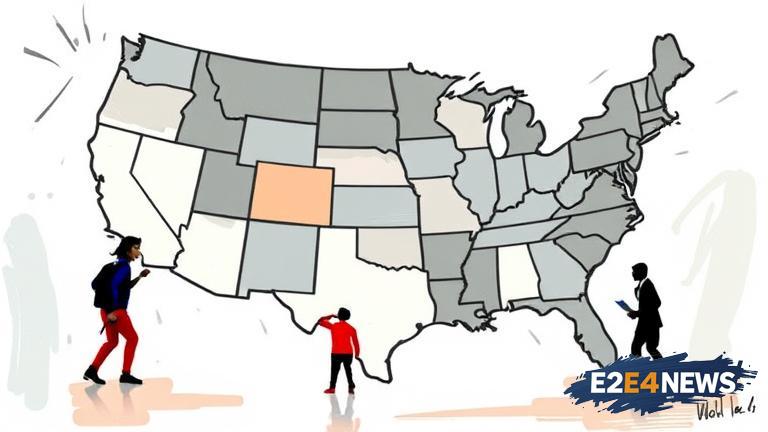The newly introduced national school voucher program has been included in a big and complex law, which has sparked a heated debate among educators, policymakers, and the general public. The program aims to provide financial assistance to families who want to send their children to private schools, but it has raised concerns about its potential impact on the public education system. One of the main concerns is that the program has no cap on cost, which could lead to a significant increase in government spending. Critics argue that this could divert funds away from public schools, which are already struggling with limited resources. On the other hand, proponents of the program argue that it will give families more choices and opportunities for their children to receive a quality education. The program is part of a larger law that aims to reform the education system and provide more flexibility to families. However, the lack of a cost cap has raised concerns about the program’s sustainability and potential impact on the economy. Some experts have warned that the program could lead to a surge in demand for private schools, which could drive up costs and make it even more difficult for low-income families to access quality education. Others have argued that the program could lead to a brain drain in public schools, as top students and teachers may be lured away by private schools. Despite these concerns, the program has been welcomed by some families who see it as an opportunity to provide their children with a better education. The program is expected to be implemented in the coming months, and it will be interesting to see how it plays out. The government has promised to monitor the program’s progress and make adjustments as needed. However, some critics have argued that the program is a step in the wrong direction and that it will only serve to exacerbate existing inequalities in the education system. The debate surrounding the program is likely to continue in the coming months, with both sides presenting their arguments and evidence. As the program is implemented, it will be important to keep a close eye on its impact and make adjustments as needed to ensure that it is serving the best interests of all students. The program’s success will depend on a variety of factors, including the level of funding, the quality of private schools, and the ability of families to access the program. Ultimately, the goal of the program is to provide families with more choices and opportunities for their children to receive a quality education, but it remains to be seen whether it will achieve this goal. The program is a complex issue, and it will require careful consideration and monitoring to ensure that it is successful. In conclusion, the new national school voucher program is a controversial issue that has sparked a heated debate among educators, policymakers, and the general public. While it has the potential to provide families with more choices and opportunities for their children to receive a quality education, it also raises concerns about its potential impact on the public education system and the economy.
